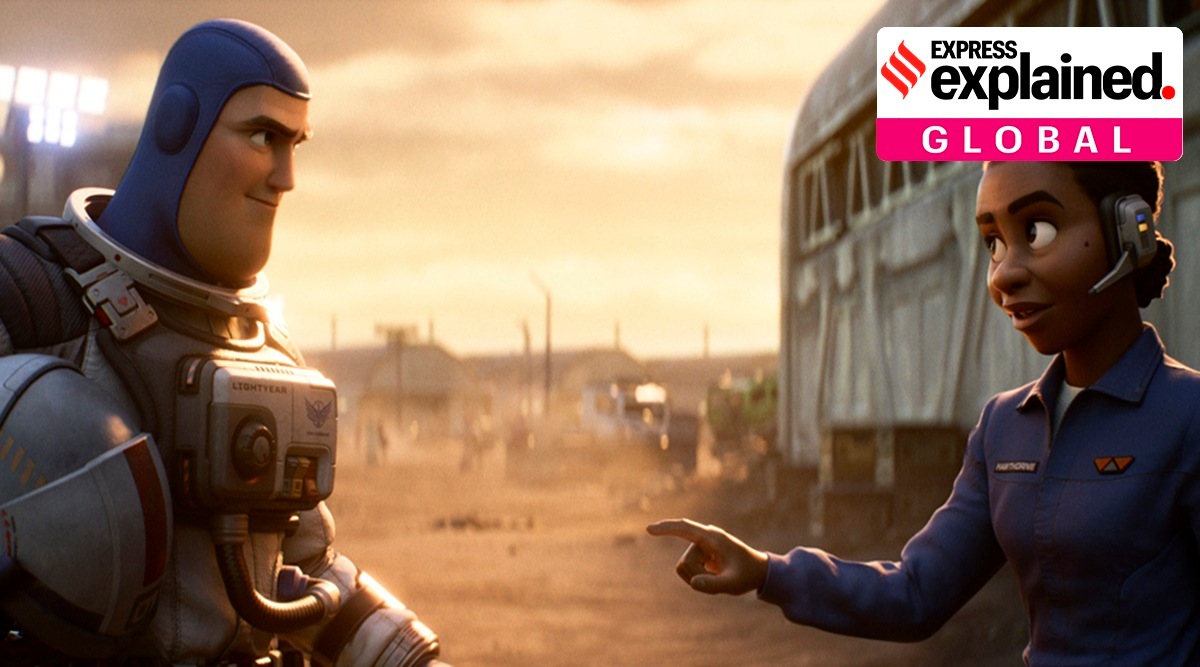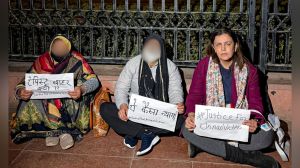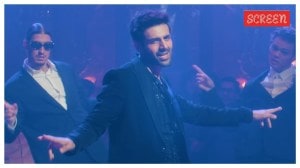Hollywood films having mentions of or showing LGBTQ characters on screen have previously been censored in many countries. Studios have often made edits to films, and cut out such scenes and characters to release films in these countries. However, Disney has been indicating for some time now that it would stick to its stance of not editing its films.

The controversy comes during the annual Pride Month of June, which sees commemorations of the movement for LGBTQ rights, as well as celebrations and activism. The film opened in theatres across India on Friday (June 17).
What is ‘Lightyear’ about?
‘Lightyear’ is a prequel spin-off of the critically and commercially acclaimed ‘Toy Story’ series. In it, the central character of Buzz ‘Lightyear’ has a friend who is in a relationship with another woman. Buzz Lightyear is voiced by Avengers actor Chris Evans, who told Reuters of the ban: “There’s always going to be people who are afraid and unaware and trying to hold on to what was before. But those people die off like dinosaurs…I think the goal is to pay them no mind, march forward and embrace the growth that makes us human.”
So far, 14 countries — largely in Southeast Asia and the Middle East — have banned the film, mainly under laws that ban homosexuality or its depiction onscreen. The UAE said the couple’s relationship violated the country’s media content standards. Homosexuality is criminalised in the country.
Singapore’s media regulation authority gave the animated film a 16+ rating, noting the rating was arrived at by being “sensitive to social norms and values that are generally acceptable to members of the public”.
The film consultation panel chairperson, Cheryl Ng, said: “While it is an excellent animated film set in the US context, Singapore is a diverse society where we have multiple sensibilities and viewpoints.”
Have films been banned earlier because of LGBTQ scenes?
Yes. The cultural and social acceptance of LGBTQ people and the laws governing them varies widely across the world, and this situation keeps emerging in certain places whenever there is even a blink-and-miss LGBTQ reference in a film.
A recent example is Disney Marvel’s hugely successful ‘Doctor Strange in the Multiverse of Madness’. A Saudi official requested a cut of “barely 12 seconds”, referring to a scene in which the character America Chavez remembers her two mothers, reported The Guardian.
Story continues below this ad
The official said: “It’s just her talking about her moms, because she has two moms…and being in the Middle East, it’s very tough to pass something like this.” The film was eventually banned. In January, the film ‘West Side Story’ was also not shown in many Gulf countries, reportedly due to the character Anybodys, which is of a transgender person.
But this is not restricted to the Gulf and Southeast Asia. In 2017, the release of Disney’s ‘Beauty and the Beast’ caused the Russian government to take note, as the film showed an openly gay character for the first time in Disney history.
A member of Russia’s parliament described the film as “shameless propaganda of sin”, and though homosexuality is not criminalised in Russia, “propaganda” related to it attracts punishment.
What is the debate on LGBTQ representation?
Even in countries such as the US, the depiction in children-focused content has triggered controversy. A polarising debate is ongoing about the scope of representation of LGBTQ relationships and identities. Earlier, with lesser visibility of the community in public, and in the absence of legal acceptability, its presence in movies and in public spaces was rare. If it was there, it consisted of only subtle references.
LGBTQ rights advocates have been demanding that the community should be depicted as openly and visibly on screen as non-LGBTQ couples and individuals.
Story continues below this ad
Within Disney too, LGBTQ employees wrote to the company and alleged it “actively censored overtly gay affection” in its films, ‘Variety’ reported. The report added how initially ‘Lightyear’ was supposed to show the women in a relationship, but not the kiss. After the critical letter from employees, the scene was added, and the company vowed to take more action.
Conservative groups disagree, particularly regarding content focused on children. Recently, Disney CEO Bob Chapek was criticised by the Florida Governor over Chapek’s opposition to the so-called ‘Don’t Say Gay’ bill that was introduced in the state. Florida has the biggest Disneyland theme park in the world.
The bill was passed, and the law now bans discussions of sexual orientation or gender identity at the level of primary school. It was termed as “hateful” by President Joe Biden, but supporters argued that it gave control to parents about the education their children received. Parents can now take legal action if schools are found discussing LGBTQ topics.
Newsletter | Click to get the day’s best explainers in your inbox








































